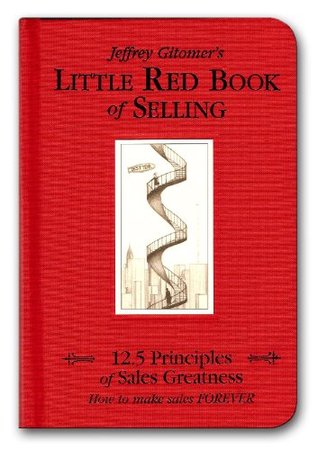More on this book
Community
Kindle Notes & Highlights
Read between
November 6, 2017 - January 23, 2018
sale is made or lost based on the questions you ask. If you aren't making all the sales you want -- start by evaluating the specific wording of the questions you're asking. Your answers are in your questions.
Looking for a few Power Question lead-ins? Try these... "What do you look for ...?" "What have you found ...?" "How do you propose ...?" "What has been your experience ...?" "How have you successfully used ...?" "How do you determine ...?" "Why is that a deciding factor ...?" "What makes you choose ...?" "What do you like about ...?" "What is one thing you would improve about ...?" "What would you change about ...?" (Do not say, "What don't you like about ...?") "Are there other factors ...?" "What does your competitor do about ...?" "How do your customers react to ...?"
To use questions successfully, they must be thought out and written down in advance. Develop a list of 15 to 25 questions that uncover needs, problems, pains, concerns, and objections. Develop 15 to 25 more that create prospect commitment as a result of the information you have uncovered. Practice. After about 30 days of asking the right questions you'll begin to see the real rewards.
Sales Truth: Salespeople become known by the questions they ask. Knowing this truth, you'd think all salespeople would ask smart questions. You'd be thinking wrong. It never ceases to amaze me, that with all the options salespeople have, they choose to alienate, anger or cause doubt in the mind of the prospect by setting the wrong tone with their questions.
NOTE: You do have the luxury of asking a weak question about their stuff, if you preface it with the statement, "I was looking at your web site last night and I got a couple of ideas I'd like to talk to you about, but there were a few things I'd like to understand a little better about the way you serve your customer." NOW YOU CAN ASK ANYTHING AND STILL LOOK SMART.
Buyers don't want an education. Buyers want answers. Your questions set the stage for the selling process -- which is really the buying process. Your job is to set the buying tone by engaging the prospect intellectually and emotionally.
Your questions are a critical factor in the way your customers perceive you. If they're intelligent and engaging, they consider you a person of value. If your questions are dumb, they consider you a salesperson of price.
It's not hard sell, it's heart sell. Good questions get to the heart of the problem/need/situation very quickly -- without the buyer feeling like he or she is being pushed.
Principle 8 IF YOU CAN MAKE THEM LAUGH, YOU CAN MAKE THEM BUY! Having the first laugh makes a sale that lasts. Need to improve your humor? Become a student of humor. RedBites Humor. The final frontier. Humor is the highest form of language mastery. What's so funny about being professional? The difference between a joke and a story. Laughter is universal.
I believe that making people smile is a major key in selling. The prospect may not be interested in hearing about your stuff, but they're always looking to smile or laugh.
study humor.
Read joke books, or books that are funny. Milton Berle's joke book is particularly good. Books written by humorists like Dave Barry, Art Buchwald, Scott Adams, and Lewis Grizzard are great.
5. Watch and listen to children very carefully. Kids are naturally funny in both words and actions.
7. Take humor risks where you don't have much to lose -- at home, with friends, in divorce court, in prison, etc.
9. Practice making funny faces and gestures in the mirror. If you're really brave, use the rear view mirror.
12. Carry audiotapes of your favorite comedians with you in the car. Pop them in before you make a sales call to get a lift.
13. Start looking for humor in your everyday life. Try to appreciate it as it is happening, instead of always in hindsight.
14. Practice exaggerating your gestures and experimenting with your posture. A lot of humor is body language humor. Learn to be funny without saying a word.
15. Hang around funny people. It's amazing how your humor will increase when you're in the company of people who are funny.
15.5 Laugh a lot. If you're serious about using humor, start smiling and laughing more.
Humor is the final frontier. It's easy to learn all about your product, it's easy to learn all about your customer, it's easy to learn the science of selling, it's hard to learn the science of humor and harder to learn how to place that humor and time that humor into your sales presentation. The essence of humor is that it is relaxing and creates a more open atmosphere. An atmosphere that will begin to breed friendship, respect and compatibility. The reason I refer to it as the final frontier is that it's the last element that you put into your selling process.
9. Studying creativity. The more you read, the more you will understand how others have learned and taught creativity. If you have not read the classic Michael Michalko's book Thinkertoys, or his new book Cracking Creativity, or any Edward de Bono book, Six Thinking Hats, Lateral Thinking, or a compilation of his thoughts entitled Serious Creativity. I recommend you start from there and immediately progress to Dr. Seuss, the champion of creativity for both adults and children. No kid can read or digest Michalko or de Bono. Every kid can read, re-read, think about, learn from, AND digest The
...more


